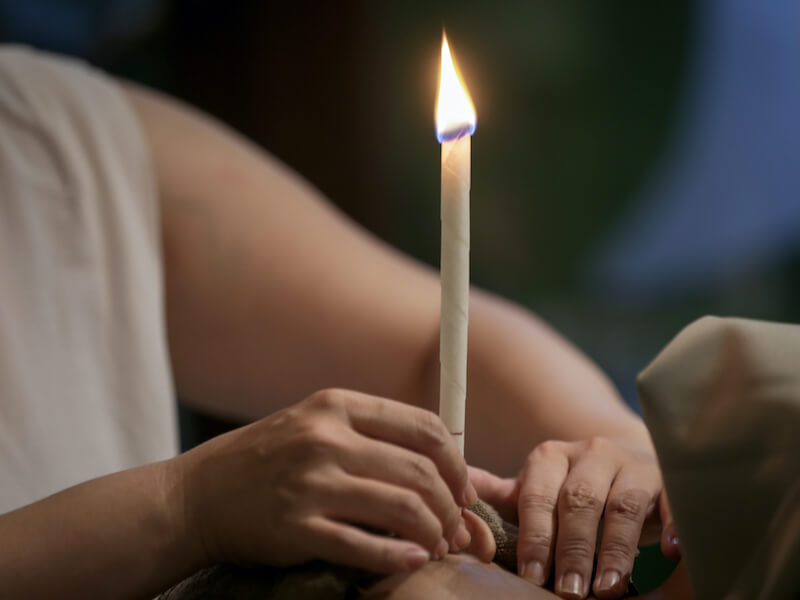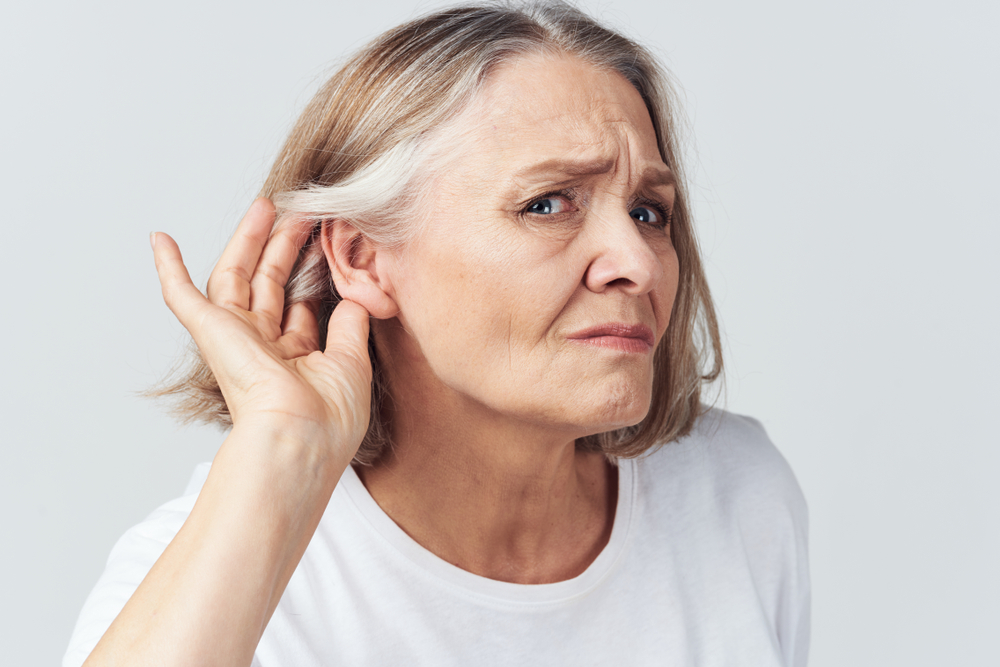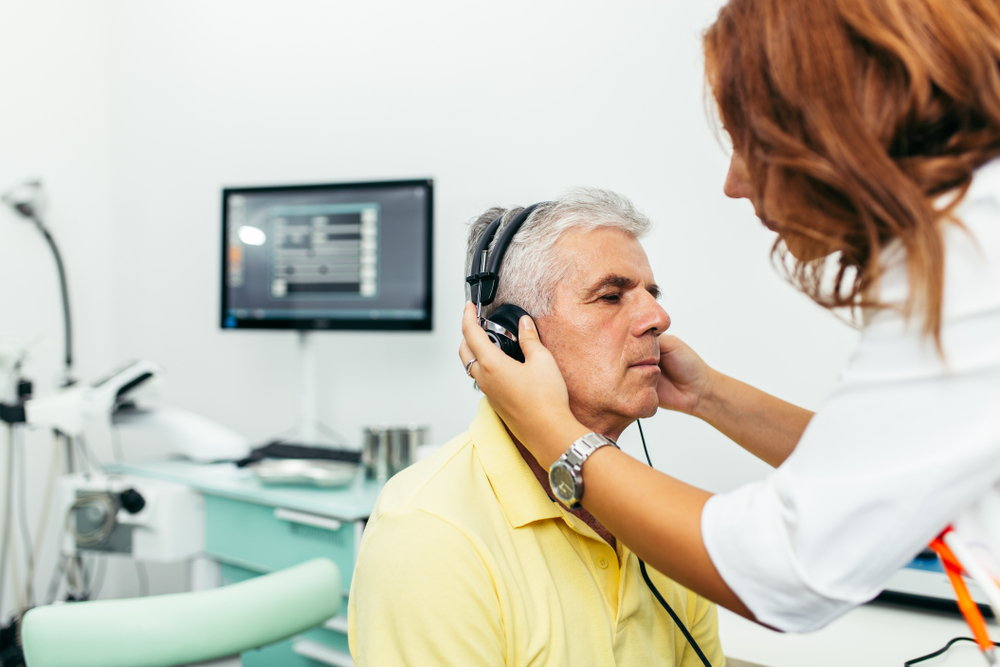Everyone loves an easy fix–especially when the solution is also a DIY fix. Got a leaky sink? Just search YouTube for the right plumbing tutorial, buy the recommended tools, and get to work! It may take you a little bit longer than it would take a plumber, but there’s no substitute for the satisfaction you feel, right?
At least, until your sink starts leaking again. Because, as it turns out, sometimes a DIY fix is no substitute for the well-honed skills of a professional.
Sometimes that’s hard to admit. And, in part, that’s why people will often continue to seek out “easy” DIY-fixes for complex problems–which might help explain the popularity of something called ear candling (or, sometimes, earwax candling). It sounds… kind of gross, doesn’t it? So, just what is ear candling, and how is it maybe not the best thing ever? Well, let’s get into that.
What is ear candling?
Have you ever had a stuffy-ear kind of feeling? Sometimes it happens when you’re sick and your ear fills with mucus. In other cases, it may occur because you have a surplus of earwax in your ears (and surplus earwax can have any number of causes). When this happens, you may experience a certain amount of discomfort. You may even notice a temporary loss in your ability to hear. It’s not fun!
As a result, some people believe they have discovered what seems to be a natural and novel solution: ear candling. The idea is to place the non-burning end of a special, hollow candle in your ear. Somehow, the combination of heat and the hollow design of the candle changes the air pressure within your ear canal, drawing the earwax or mucus out.
It should be immediately noted that ear candling is not recommended by healthcare professionals. Do ear candles really pull wax out? No. There’s absolutely no evidence that ear candling works (especially not in the way that it’s supposed to work). In other words, most hearing and healthcare professionals will emphatically recommend against ever using this technique. (Does ear candling help with sinus pressure? Also no.)
Just listen to the FDA! (What is the FDA warning about ear candling? Essentially–don’t do it!)
What are the drawbacks of ear candling?
Ear candling might feel safe, at first. It’s just a tiny flame. And you’re using “specialized” equipment. And people on the internet said it was safe! So, how can ear candling be harmful?
Unfortunately, there’s no getting around the fact that ear candling can be downright dangerous. What are the side effects of ear candling? Here are just some of the (possibly painful) ways that ear candling can impact your health:
- You can cause severe burns to your ear: Fire is hot–and so is melting candle wax. If the candle tips or the wax gets where it’s not supposed to, you’re looking at some significant burning possibilities in your ear (and your ear is a sensitive spot).
- You can leave candle wax behind in your ear: Even if that candle wax doesn’t burn you, it can get left behind in your ears. This leftover wax can cause serious discomfort and, eventually, impact your hearing.
- You can push that earwax even further into your ear: In much the same way that sticking a q-tip in your ear can smoosh the earwax into an ever-more-dense blockage, so too can sticking a specialized candle in your ear. In other words, ear candling can make your earwax problem worse! (This can cause all sorts of other complications from hearing loss to serious infections.)
- You might accidentally puncture your eardrum: There’s a danger that comes with sticking anything in your ears! You might accidentally puncture your eardrum, causing significant discomfort and damage to your hearing. Often this is something that must be treated by a hearing professional.
- You could seriously burn your face: Look, any time you’re holding candles that close to your face, there’s a not insignificant chance you’ll burn yourself. Accidents will happen! It’s all too easy for candle wax to drip into your eyes or for your hair to catch on fire or for your face to get seriously burned.
So, do hearing healthcare professionals recommend ear candling? No… not even a little! Ultimately, earwax candling isn’t just ineffective–it’s downright dangerous.
So how should you get rid of earwax?
Ear wax is generally pretty healthy! It’s actually good for your ears in normal quantities. It’s only when there’s too much earwax (or it isn’t draining properly) that you start to have problems. So… if you can’t use a burning candle to remove earwax, what should you do?
If you have an earwax blockage, the best thing to do might be talking to a hearing specialist. They might recommend some at-home remedies (such as using saline or mineral oil to soften the wax, allowing it to kind of slide out on its own). But they may also clean out your ear during your visit.
Hearing specialists have special tools and training that allow them to remove wax without harming your ear.
In general, you should avoid techniques such as using cotton swabs, earwax candling, or more. Nothing smaller than your finger should go into your ears unless directed by your hearing specialist or doctor.
How to help your ears feel better
If excess earwax is causing you a bit of discomfort or distress, you should make an appointment with a hearing specialist. They’ll be able to help you clear any stubborn earwax out of your ears–and get you back to feeling normal.
Make an appointment today–and please don’t put any candles in your ear.



